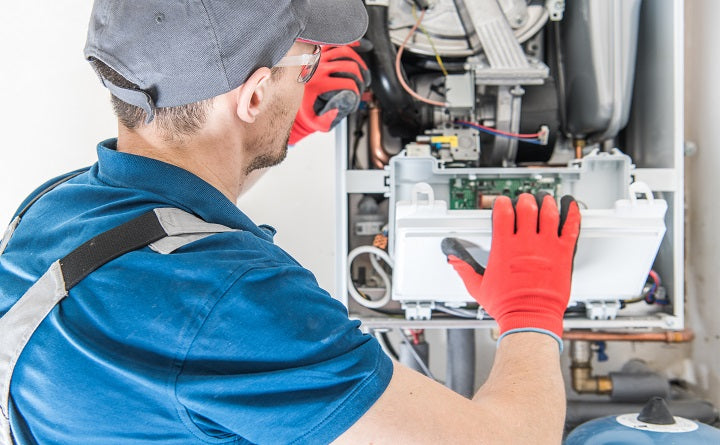Your family depends on your home’s furnace to stay warm, cozy, and comfortable throughout the heating season. If this vital appliance has reached the end of its usable life, then it’s time to consider a replacement.
On average, most electric and natural gas-powered furnaces last around 15–20 years. Once they’ve reached this age, they no longer work as efficiently as they once did. If you put off replacing your aging unit, you may pay the price in higher energy bills during the fall and winter. Additionally, once a furnace reaches this age, it’s likely only a matter of time before you’re dealing with an untimely breakdown, or one expensive repair after another.
To help you better understand what’s involved in replacing your furnace, we’ve put together a helpful guide. Read on to learn more.
What are some warning signs that it’s time to replace your furnace?
The first “sign” that it’s time for a new unit is the current unit’s age — if your furnace has reached 15 to 20 years old, it’s time to consider replacing the unit. Additionally, you may notice that your heater is no longer keeps your home as warm as it once did, or it’s distributing warmth unevenly throughout your home.
You may also notice that your furnace continues breaking down, which can lead to many expensive repairs. Other warning signs include clanking or banging noises coming from the unit, which may indicate that vital components in the system have worn out, or you may notice that the unit isn’t cycling on and off as it should, even with the thermostat set at your family’s desired temperature.
What replacement furnace is right for my home?
Once you’ve made the decision that it’s time to purchase a new heating system, you have options. Most homeowners choose to continue using the same type of furnace that they had in their home previously. This means that if you had an electric-powered furnace, you’re likely to choose an electric replacement, and the same could be said for natural-gas powered units. Choosing to switch from gas to electric or vice-versa may result in extra costs for installation.
Additionally, you need to consider what BTU capacity and AFUE rating are appropriate for your family’s heating needs. A BTU is the measure of how much heat is needed to warm one pound of water by one degree. In terms of a furnace, you should plan for 30–60 BTUs for every square foot inside your family’s home. Choosing a new unit with a BTU capacity that is less than what you need could result in a furnace that needs to run overtime to keep your family comfortable. Choosing a unit with a BTU capacity that’s more than what you need will be inefficient.
AFUE stands for “annual fuel utilization energy,” and it is essentially the measure of how efficient the unit is. Needless to say, you may pay more upfront for a replacement heating system with a higher AFUE rating. However, a more efficient unit could help you save money on your energy bills in the long run.
How much will a new furnace cost?
This will depend on a variety of factors, including whether you’re purchasing a natural gas or electric-powered unit, as well as the BTU capacity and AFUE rating. Also, you will need to factor the expense for labor and installation into the total cost. This can vary depending on what is required for removing your existing unit and setting up the the new system. Every home is unique, and for an accurate estimate of costs involved, speak one-on-one with the professional who will perform the installation.
How long will it take to install my new furnace?
This may vary depending on what type of unit you’re having installed. In most cases, you should allocate for one day’s worth of time for the technician(s) in your home to get the replacement furnace installed for you. After installation has been completed, he or she will likely also test the unit to be sure that it’s running safely.
Keep your replacement furnace protected!
Once your new furnace has been installed, make sure you keep this investment protected against an untimely breakdown. We offer an affordable Heating Repair Plan — sign up online or by calling us. Additionally, we offer a Heating Maintenance Plan that entitles you to an annual tune-up of your furnace. Yearly maintenance is key to keeping your unit running efficiently for many years to come.


